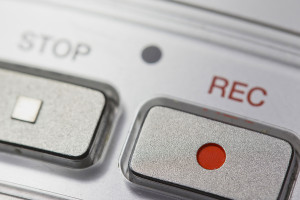 I saw a generic internet article about what not to say to your insurance company. It dealt with all types of insurance claims, but there are a few things it got right for auto claims. Here is what you should remember:
I saw a generic internet article about what not to say to your insurance company. It dealt with all types of insurance claims, but there are a few things it got right for auto claims. Here is what you should remember:
- Apologizing: be careful saying you are sorry after an auto accident. It is laudable to apologize if you are at fault, but just make sure you know that you are fault before you do. In court, the other side can testify that you apologized at the scene of the collision (or after). If there is any doubt, leave it to police, insurance adjusters, and lawyers to figure out.
- Injuries: when talking to the insurance company, it is usually best to limit your discussion about your injuries. The article mentioned that the word “whiplash” could make the insurance company suspect that you are faking your injuries. Any lawyer would recommend that you avoid discussing your injuries at all. You may need to explain it to your PIP adjuster when you submit a PIP application, but you should refuse to discuss it at all with the opposing company. This is especially true right after the accident—your injuries may not have fully realized at that point, and mentioning that you are okay could harm your claim.
 Maryland Car Accident Lawyer Blog
Maryland Car Accident Lawyer Blog


 If your cases has been set for trial, there are some things that you will need to prepare to be ready. What are you preparing for? Simply, to provide the best testimony possible to the judge. That means you need to be ready for the questions your lawyer will ask you, and you need to anticipate the questions that the defense attorney will ask you. These are the steps important for testimony, whether it is an automobile collision case, slip-and-fall, or any other type of personal injury.
If your cases has been set for trial, there are some things that you will need to prepare to be ready. What are you preparing for? Simply, to provide the best testimony possible to the judge. That means you need to be ready for the questions your lawyer will ask you, and you need to anticipate the questions that the defense attorney will ask you. These are the steps important for testimony, whether it is an automobile collision case, slip-and-fall, or any other type of personal injury.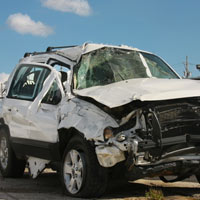 When an auto case settles, or after the judge or jury give a verdict in your favor, the insurance company will send your lawyers a check. Your lawyers will ask your permission to sign your name to the check, and they will deposit it in an escrow account. The escrow account is one of the safest, most regulated parts of lawyering. Lawyers can lose their ability to practice law if they don’t handle the escrow account exactly right. It is a near-sacred duty to the client.
When an auto case settles, or after the judge or jury give a verdict in your favor, the insurance company will send your lawyers a check. Your lawyers will ask your permission to sign your name to the check, and they will deposit it in an escrow account. The escrow account is one of the safest, most regulated parts of lawyering. Lawyers can lose their ability to practice law if they don’t handle the escrow account exactly right. It is a near-sacred duty to the client. We had a pre-trial conference in Cecil County earlier this week. As I was discussing with my clients what to expect, I was reminded that, as “old hat” as these pre-trial conferences are for me, most people have never been through the process. This is a good place to describe what they are all about.
We had a pre-trial conference in Cecil County earlier this week. As I was discussing with my clients what to expect, I was reminded that, as “old hat” as these pre-trial conferences are for me, most people have never been through the process. This is a good place to describe what they are all about.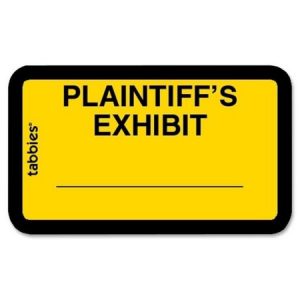 Immediately after an injury, it is important to collect and preserve all the evidence you will need to prove your case. Trials can be lost because of a lack of evidence. Sometimes, a judge deciding liability may need to know where the cars came to rest, what the property damage looked like, or what the dashcam footage revealed. Sometimes that evidence is in the hands of another person, corporation, or governmental entity.
Immediately after an injury, it is important to collect and preserve all the evidence you will need to prove your case. Trials can be lost because of a lack of evidence. Sometimes, a judge deciding liability may need to know where the cars came to rest, what the property damage looked like, or what the dashcam footage revealed. Sometimes that evidence is in the hands of another person, corporation, or governmental entity.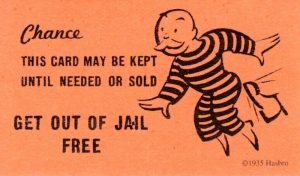 It’s one of those things that most lawyers have had to deal with at one time or another in personal injury cases. The client (plaintiff or defendant), or an important witness, might be, as we call it, a “resident of the State.” That is, they may be in jail.
It’s one of those things that most lawyers have had to deal with at one time or another in personal injury cases. The client (plaintiff or defendant), or an important witness, might be, as we call it, a “resident of the State.” That is, they may be in jail.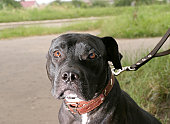
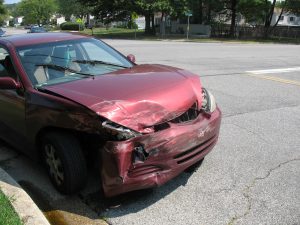 So you were in a car collision (
So you were in a car collision (